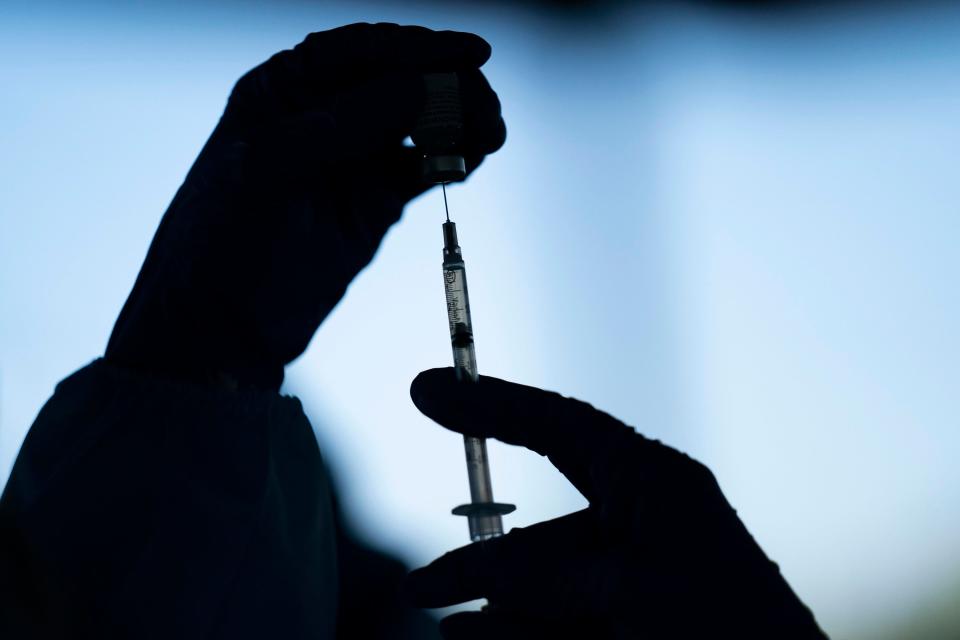Viewpoint: Bayh-Dole Act protects medical innovation for Hoosiers
- Oops!Something went wrong.Please try again later.
- Oops!Something went wrong.Please try again later.
Health care innovation saves lives. Whether it’s in the form of new medicines that cure disease or new medical procedures that heal us, American innovation leads the way. Every day, new technologies are discovered that can address chronic conditions once thought untreatable. Science and technology have helped solve some of our nation’s most complex health care problems and improve Americans’ lives. And I’m proud to say that Indiana is driving this innovation revolution.
Our native son, Sen. Birch Bayh, is arguably the architect of the modern innovation economy. The Wall Street Journal called The Bayh-Dole Act one of the three greatest policies for fostering U.S. job creation. Passed in 1980 with the bipartisan sponsorship of Sens. Bayh and Bob Dole, the act allowed university researchers receiving government funding to license important discoveries commercially.
For years, the Bayh-Dole Act has protected American innovation and led to cures that have saved countless lives around the world. Now, we should protect it just as it has protected us.
Since its passage, the number of patents from government-funded research has skyrocketed, reaching more than 40,000 in 2017. Hundreds of new laboratories have opened, and scientists and researchers have opted to take their skills to the classroom to teach the next generation of innovators so that we can continue realizing new cures. Universities nationwide have launched more than 15,000 American startups and created more than 300 new patented medicines.
Indiana is a Top 10 state in life science employment and continues to be a leader in health care innovation, as evidenced by the high volume of patents received. Between 2018 and 2021, Hoosier inventors were associated with 3,421 patents awarded in bioscience-related technology classes. Indiana is ranked third for academic biosciences research and development investment growth, increasing 23 percent from 2018 to 2021. And bioscience-related venture capital investments in our state increased significantly in 2021 to $241 million.
Indiana didn’t become an innovation leader by accident. Our forward-thinking leaders created and fostered an atmosphere where science can improve and save lives. Our universities have been able to work side by side with the private sector to bring important cures to the market.
Now, some in Congress want to use an incorrect interpretation of the Bayh-Dole Act in a misguided attempt to lower the cost of new treatments. While many might see this as a worthy goal, it would assuredly come at the expense of biopharmaceutical investment and the lifesaving outcomes it generates. This short-sighted move will put future research at risk, including research that is desperately needed for new cures for untreated disease.
Just by looking at the numbers and the overwhelmingly positive impact of the Bayh-Dole Act, it’s clear that government shouldn’t try to fix a system that is working, bringing new innovations to market while helping to build the American economy.
At a time when our biopharmaceutical industry developed lifesaving COVID-19 vaccines at warp speed, and has made other unprecedented strides in medical innovation, it’s wrong to discourage the partnership between universities, the private sector and government. This will lead to fewer cures in the future.

We can all agree that we need forward-thinking policy solutions to lower the cost of health care. But we must look at those costs holistically and not incorrectly place the blame on one industry—and certainly not on American biopharmaceutical innovators whose technologies have saved lives and will continue to if our legislators do the right thing.
Kristin Jones is the President and CEO of the Indiana Health Industry Forum, a not-for-profit trade association representing the state’s health science corporations.
This article originally appeared on South Bend Tribune: Bayh-Dole act protects American innovation; we should protect the law.

